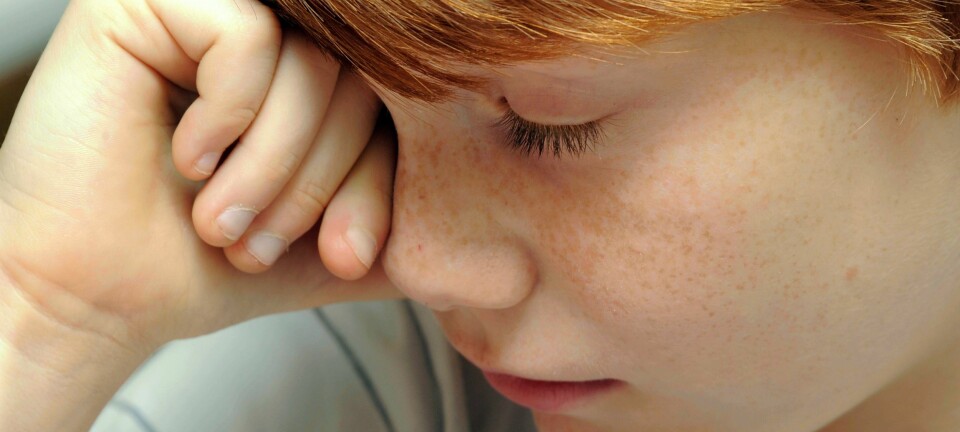
Children bear the brunt of parental conflict after divorce
The conflicts between divorced parents can lead to long lasting loss of self-confidence in their children, shows a new study.
Young people suffer from low self-esteem years after witnessing conflict between their divorced parents. But an amicable divorce does not result in such a long lasting damaging effect, according to a new study from The Danish National Centre for Social Research (SFI).
It is the first time researchers have documented that children suffer long-term harm, which continues into adulthood, after a painful divorce where parents constantly argue, slander each other, or cannot communicate at all.
“We often think that parental relationships--when parents are constantly bickering--don’t have much influence on older kids,” says Siddhartha Baviskar, a Ph.D. student with SFI.
“But our research shows that a divorce full of conflict also leads to low self-esteem in young people over the age of 18. Even though they have a good relationship with both their mum and dad, they often have low feelings of self-worth if the parents can’t work together,” he says.
Measured self-esteem
Almost 800 young people whose parents are divorced took part in the new research.
They were asked at the age of 15, to describe how well their divorced parents got along and to describe their own relationship with both of their parents. They were asked if they felt they could count on both their mum and dad, whether their parents listened to them, and whether they felt loved.
Baviskar and colleagues then measured their self worth according to a globally recognised scale, four years later when the participants had turned 18. The participants were also asked to evaluate their feeling of self-respect, feelings of uselessness, and whether they felt proud of their achievements or unsuccessful.
Parental conflict is essential
The results showed that 15-year-olds often developed low self-esteem by the age of 18 if their parents’ relationship was riddled with conflict, compared to kids whose parents’ divorce was amicable. And this impact was long lasting.
“We know that statistically, kids of divorcees often have lower self-esteem than kids of non-divorced parents,” says Baviskar.
“Our new study shows that it is particularly the parents’ level of conflict that has an influence in the long run, even when we take into account other things that are important in an adolescent’s life, such as friendships or appearance,” he says.
Conflict weighs heavy on adolescents
Karen Wistoft, a professor at the Danish School of Education, Aarhus University, Denmark, who also studies child and adolescent well-being, is not surprised by the new results.
“It’s exciting that researchers show that there is a statistical correlation between the level of parental conflict and young people’s self-esteem. It fits well with what we see in our research,” says Wistoft.
Wistoft has observed and conducted interviews with children and adolescents to discover the factors that impact their mental well-being in school.
She has seen herself, how a messy divorce weighs heavily on the children caught in the middle of it.
“It’s harder [for young people] when they have to choose and take sides between mum and dad all the time. They bear the brunt of the conflict and it’s a heavy load to carry,” she says.
“Most kids and adolescents can thrive, even when they are moving back and forth between their parents, but if there is conflict they are affected in a way that makes them insecure and tired. It weighs heavily on them, also at school,” says Wistoft.
------------------
Read the Danish version of this article on Videnskab.dk
Translated by: Catherine Jex











